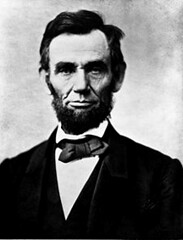
While the nation celebrates the victory of President-elect Barack Obama, Nevada is already lamenting the unintended consequences that came with his victory. Two respected state senators, one of which I worked with this cycle, lost their seats to campaigns best described by the only paper to endorse those who benefited.
“Don’t look to Allison Copening, who defeated Beers, or Shirley Breeden, who defeated Heck, to become a driving force during the next legislative session. The candidates relied on outside expenditures that hammered the incumbent with negative ads, a national Democratic wave, and ducking debates and tough questions,” wrote Cy Ryan with the Las Vegas Sun. “Now, they’ll have to navigate the politics of Carson City. And their positions on the issues, from renewable energy to higher taxes, will be on the record.”
The surrogate smear campaigns against Beers and Heck, which exceeded the early estimates of $1 million against both to be closer to $1 million against each for races that usually require around $100,000 to run a substantive campaign, included lies about their records, their characters, and their professions.
Specifically against Beers, the mailers and television advertisements eventually claimed a fictitious ethics charge and accused him of “making up” a law enforcement endorsement that he had. In one of the television commercials, they included a four-frame fraction-of-a-second image of a gun pointing to his head. The owners of that advertisement said they stood by it.
Where was the media? For the most part, the newspapers were there. The more conservative Las Vegas Review-Journal, the more liberal Las Vegas Sun, and the liberal alternative Las Vegas CityLife all vetted the false claims, damned the smear campaigns, protested the refusals to debate, and demonstrated direct ties from the candidates to the surrogate attacks. The latter of the three papers ultimately joined the more conservative first to endorse Beers.
Yet, with print circulations declining and mostly unanswered anonymous comments attached to those articles online, the weight of independent or even biased journalism is waning; something that needs to concern us all. Even when budget-crunched newspapers are not resorting to "he said, she said" reporting that masquerades as objectivity, fewer people are reading. Instead, they only rely on whatever can be burped out by black hat public relations professionals and political spinsters.
Ultimately, two well-funded Astroturf campaigns carried the day in both races, backed by Obama-led straight-ticket voter turnout and diminished Republican turnout that left even Richard McArthur, candidate for the more conservative Assembly District 4, vulnerable for most of the evening against an opponent who did not campaign at all. McArthur won by a small margin.
As for the state senate races, the losers are Nevadans. In Beers, they lost the only accountant in the state legislature, who even his adversaries agreed knew more about the state budget than anyone serving in the state senate and credited with being a champion for the underdogs, even if it meant going against his own party. In Heck, they lost a smart legislator, emergency room doctor, and U.S. Army Reserve colonel.
What is the cost? Considering, before the ink was even dry on the morning newspaper, some of the would be winners who promised no “new taxes at this time” are already saying they feel pressured to raise them, which reminds me of a fitting quote from American writer and economist Thomas Sowell:
“If you have been voting for politicians who promise to give you goodies at someone else's expense, then you have no right to complain when they take your money and give it to someone else, including themselves.” — Thomas Sowell




















